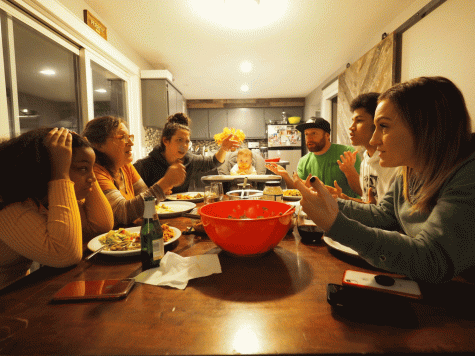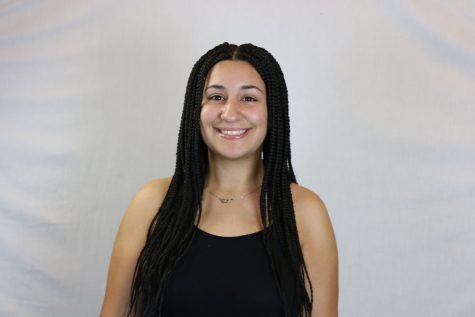Dinnertime Debates
How students talk about politics with family

Some families have differing politcal views, which can lead to heated debates during family
gatherings.
The holidays are just around the corner and along with pumpkin pie and endless remarks on your height from relatives, comes the often inevitable dinnertime political discussion.
For families like freshman Talia LeVine’s, political conversations are nothing new.
“[Politics] are like 90% of our conversation at the dinner table,” she said.
While LeVine describes most of her family as Democratic, she admits she is more left-leaning than her parents and brother.
“I think [my family] is a little more centrist than I am,” LeVine said. “We sometimes disagree on modern issues, where they weren’t raised to see them the same way I do.”
Like LeVine, freshman Julia Cappio’s family members also immerse themselves in politics.
“[Talking about politics] gets quite annoying… It’s all we ever talk about at family dinners,” she said.
Cappio explained that when her family visits relatives in South Carolina,
“We don’t talk about [politics] as much if they have different views than us, but we still make an effort as a family to hear other people’s points of view.”
Junior Henry Buscher leads the Centrist and Conservative Discussion Club, a group dedicated to talking about politics during school hours. He finds value in debates where participants share their ideas frankly.
“That almost always leads to differing opinions, which make the best discussions,” Buscher said.
LeVine agrees, and related the importance of varying opinions to
our governmental system.
“Having a range of political beliefs is important. That way not everyone has the same ideas, and it’s more [democratic],” she said.
According to Buscher, the Centrist and Conservative Club welcomes anyone willing to have a productive political debate on all sides of the political spectrum.
Buscher also believes that familial conversation centering around politics can be useful in seeing all sides of an issue.
“In this day and age, people often take political differences too far and use them to define a person’s entire existence, and thus can generate unnecessary hatred towards people who hold different opinions,” he said.
Senior Lillian Ellis has worked with in politics in the past, and she is now the chair of a program that gets high school students involved. Ellis identifies as a
Democrat, and she wishes her conversations with extended family at holiday dinners were as prominent as with her immediate family.
“I talk about this all the time, that our nation and our city, all needs to become better listeners… I think it’s just as equally important as understanding how to voice your opinion,” Ellis said.
Ellis is a firm believer that talking and listening is the way to reach understanding.
“I feel like this fear that people have of being afraid of making someone mad… is really bad,” she said. “I think this idea to empathize is really what’s going to help us out.”

Sydney Goitia-Doran is one of the print editors-in-chief of the Puma Press and she has been on staff for four years. Her favorite types of stories to write...

